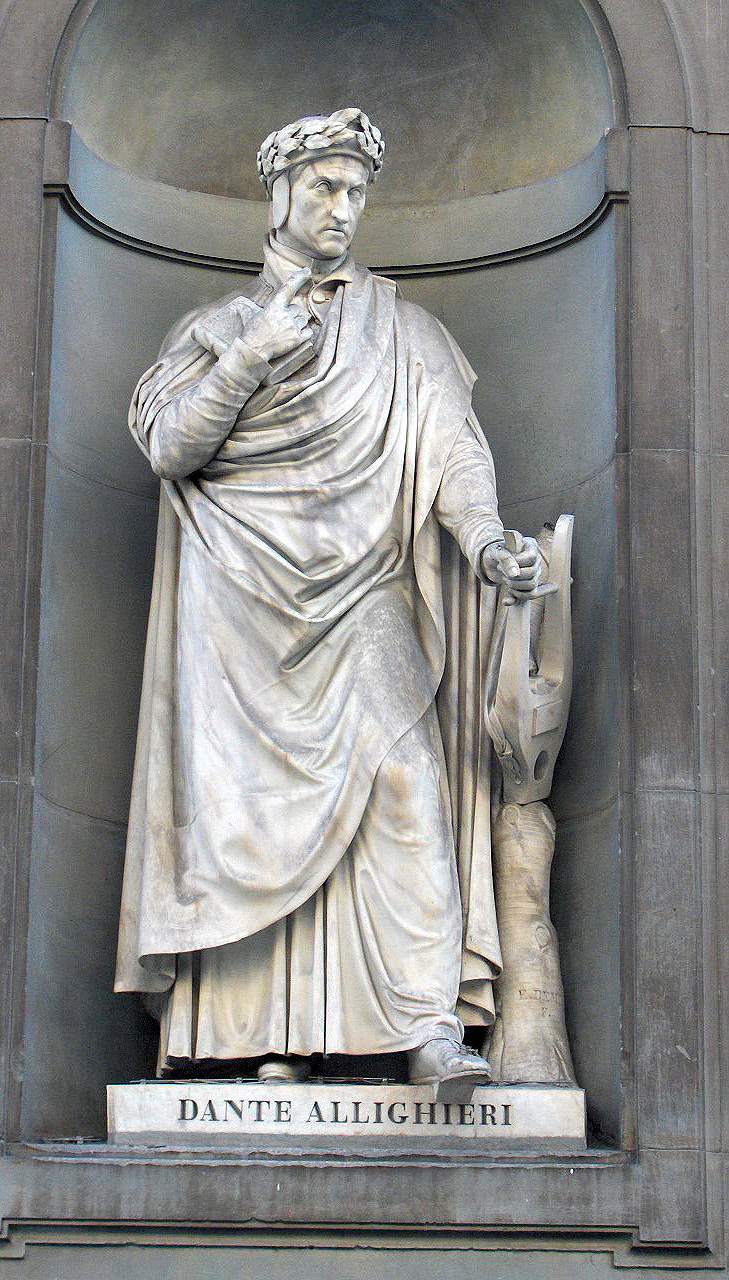Dante
Alighieri has the reputation of being one of the world's greatest poets,
because of his "Divine Comedy". This book is very different.
"Monarchy" is a prose text, outlining Dante's views on politics and
state-church relations.
"Monarchy" is divided into three parts. In the first part, Dante argues for a world empire, ruled single-handedly by a monarch modelled on the pagan Roman emperors. The arguments are framed in the manner of Aristotelian syllogisms. Still, most of them look vaguely familiar: just as God is the single ruler of the universe, the emperor should be the single ruler of humanity; since universal peace is good for humanity, and since two or more rulers can wage war against each other, there must be a single ruler of the whole world; there must be a final court of appeal somewhere, and that can only be the emperor, etc.
Dante further claims that the emperor can't be greedy: since he already rules the world, and therefore has everything, greed cannot enter his mind, and he is therefore perfectly just. "Therefore since the monarch is the most universal cause among mortals that men should live the good life, it follows that the good of mankind is dear to him above all else".
The Supreme Poet then declares that humanity is truly free only if subject to an autocratic world ruler: "Thus it must be borne in mind that a thing is free which exists for its own sake and not for the sake of something else, as Aristotle states in the Metaphysics. Mankind exists for its own sake and not for the sake of something else only when it is under the rule of a monarch, for only then are perverted forms of government (i.e. democracies, oligarchies and tyrannies), which force mankind into slavery, set right. Since the monarch loves men most, as we have already noted, he wants all men to become good, and this cannot happen under perverted forms of government."
In the second part, Dante attempts to show that the pagan Roman Empire ruled the whole world by the will of God, and that the best form of rule is therefore the re-establishment of said empire. In part, Dante accomplishes this by recounting the heroic deeds of various figures from the Roman Republic, as if there was a direct continuity between the Republic and the later Empire. He further states that the founder of Rome, Aeneas, was the noblest person in the world, and that the kingdom established by him therefore had the right to conquer and subdue its neighbours. Another important proof is that a large shield fell from heaven when the Roman king Numa sacrificed to the pagan gods. This miracle shows that Rome had divine favour.
To modern readers, these arguments look very strained, but they must have seemed pretty strained even to Dante's contemporaries. Dante, after all, was a Christian, not a pagan, and yet he sees pagan miracles as proof that a world monarchy is desirable. The most stunning argument offered by Dante Alighieri in this section is that since Jesus was born under Roman rule, and was condemned to die by the Roman authorities, the divine legitimacy of the Roman Empire is proven (!).
The plot thickens in the third section, where our poet refutes arguments for *papal* world rule, put forward by people we would today call Ultramontanists. Dante manages to demolish all the usual arguments for papal supremacy (the two lights, the two swords, etc). Sometimes, this section is actually quite humorous - the "Ultramontane" arguments were *very* weak. But even this section contains a stunning statement: Dante rejects the so-called Donation of Constantine, since he believes that Constantine acted without proper authority when he gave the popes temporal power (actually, the Donation is a forgery, but this was unknown in Dante's day). To Dante, Constantine's donation was in effect a division of the empire, something no emperor has the right to do. Thus, Dante is forced into the rather strange position, for a Christian, that the pagan emperors were better than the first Christian emperor!
What are we to make of "De Monarchia"? If taken at face value, the work is frankly absurd. The safest course, perhaps, is to see it as a piece of panegyric, perhaps written to appease the Holy Roman emperor Henry VII, who Dante hoped could unite Italy. Dante had originally opposed the power of the Holy Roman emperors, but later changed his mind on the subject, after a series of complex events in his native Florence best left aside here. Personally, I was struck by two things when reading "Monarchy". First, Dante makes a strong case for the temporal power against the papacy. This makes him one of several 14th century theorists who paved the way for a secularized form of government, free from the power of the Church. Second, Dante doesn't call for a democratic form of government, in contrast to Marsilius of Padua or William of Ockham (who, ironically, were associated with a later Holy Roman emperor, Louis of Bavaria). Instead, he adopts a position strangely reminiscent of 16th, 17th and 18th century absolutism.
I'm not sure if Henry VII ever read this text. But the Sun King would have been proud.

No comments:
Post a Comment